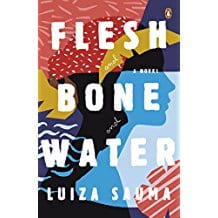by Rebekah Lattin-Rawstrone
Set up to showcase the wonderful creative writing talent coming from City’s Short Creative Writing courses, City Writes held its second event on the balmy evening of the 12th July to an intimate and attentive audience in City’s Convocation Suite.
Katy Darby, our first competition winner, City Short Courses VL and one of the founders of Liars’ League, began the evening with her story ‘Knock Knock’. A dark and disturbing voice-piece, ‘Knock Knock’ presented the audience with the terrible notion of a baby speaking to its mother in the womb through a series of intense and painful kicks.
Next, we had Bren Gosling reading ‘Meatballs’. An alumnus of The Novel Studio, Bren’s story took us onto a bed in A&E where the protagonist pondered his relationship with his boyfriend while getting his anal cyst lanced. It was as funny and uncomfortable as it sounds.
Our final competition winner was Becky Danks who had just completed the Children’s Fiction course with Caroline Green. Her story, ‘The Anniversary’ was inspired by the painting of the same name and dealt with a couple trying to heal after the stillbirth of their first child. Beautifully poised between the two viewpoints, ‘The Anniversary’ was thought-provoking and quiet in its contemplation of grief and the possibility of recovery.
Our headline act was the wonderful Luiza Sauma, a short courses alumna who was reading from her debut novel, Flesh and Bone and Water, published earlier this year to great acclaim. The novel is set in London and Brazil and explores, through memory, that intense period of early adulthood, lived with such abandon and without the knowledge of the lifelong effects it may have. Heady with Brazilian humidity and the lure of memory, Flesh and Bone and Water unravels the mysteries of Andre’s early youth to great effect, bringing the beauty and heat of Brazil to life.Luiza treated us to a wonderful reading before selling and signing some of her books.
Please do get involved in the next City Writes. If you are an alumni with a novel to promote, get in touch via rebekahlattinr@gmail.com or if you would like to enter the City Writes competition and stand alongside our next professional reader (to be announced in September), the deadline for the Autumn City Writes competition is 17th November. The next event will be held on Wednesday 13th December.












Recent Comments